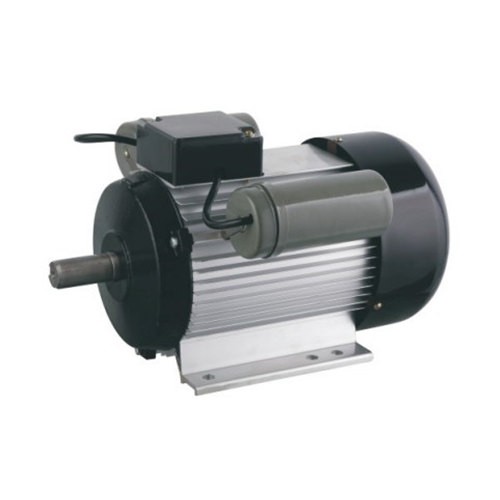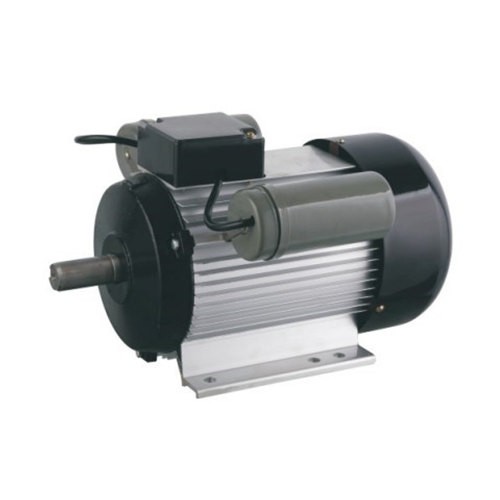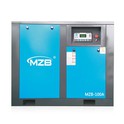When it comes to powering air compressors, one of the most critical decisions is choosing between AC (Alternating Current) and DC (Direct Current) electric motors. As a supplier of Electric Motor for Air Compressor, I've witnessed firsthand the impact of this choice on the performance, efficiency, and overall cost of air compressor systems. In this blog, I'll delve into the key differences between AC and DC electric motors for air compressors to help you make an informed decision.
1. Power Source and Availability
The fundamental difference between AC and DC motors lies in their power sources. AC motors are designed to run on alternating current, which is the standard power supply available in most commercial and residential settings. This widespread availability makes AC motors a convenient choice for air compressors, as they can be easily connected to the existing electrical grid without the need for additional power conversion equipment.
On the other hand, DC motors operate on direct current, which is typically provided by batteries or DC power supplies. While DC motors offer greater flexibility in terms of power sources, they require a dedicated DC power system, which can add to the initial cost and complexity of the air compressor installation. However, in applications where portability and off-grid operation are essential, such as in remote construction sites or mobile air compressor units, DC motors are often the preferred choice.


2. Speed Control and Torque Characteristics
Another significant difference between AC and DC motors is their speed control and torque characteristics. AC motors are known for their simplicity and reliability, but they typically have a fixed speed determined by the frequency of the power supply. While it is possible to vary the speed of an AC motor using a variable frequency drive (VFD), this adds to the cost and complexity of the system.
DC motors, on the other hand, offer precise speed control and high starting torque, making them ideal for applications that require variable speed operation or frequent start-stop cycles. DC motors can be easily controlled using a simple DC motor controller, which allows for smooth and efficient speed adjustment. This makes DC motors well-suited for air compressors that need to operate at different speeds depending on the demand for compressed air.
3. Efficiency and Energy Consumption
Efficiency is a crucial factor to consider when choosing an electric motor for an air compressor, as it directly impacts the operating cost and environmental footprint of the system. In general, AC motors are more efficient than DC motors, especially at full load. This is because AC motors have fewer losses due to the absence of brushes and commutators, which are common sources of energy loss in DC motors.
However, the efficiency of an AC motor can be significantly reduced when operating at partial load or variable speed. In these situations, a DC motor may offer better energy efficiency, as it can be easily adjusted to match the load requirements of the air compressor. Additionally, DC motors are often more efficient in applications where regenerative braking or energy recovery is possible, such as in some industrial air compressor systems.
4. Maintenance and Reliability
Maintenance and reliability are important considerations for any industrial equipment, including air compressors. AC motors are generally more reliable and require less maintenance than DC motors, thanks to their simple design and the absence of brushes and commutators. AC motors also have a longer service life and are less prone to wear and tear, making them a popular choice for continuous-duty applications.
DC motors, on the other hand, require regular maintenance to ensure the proper functioning of the brushes and commutators. Over time, the brushes can wear out and need to be replaced, which can be a time-consuming and costly process. Additionally, the commutator can become dirty or damaged, leading to poor motor performance and increased energy consumption. However, with proper maintenance and care, DC motors can provide reliable and efficient operation for many years.
5. Cost and Initial Investment
The cost of an electric motor is an important factor to consider when choosing an air compressor. AC motors are generally less expensive than DC motors, especially for standard applications. This is because AC motors are more widely available and have a simpler design, which reduces the manufacturing cost. Additionally, the cost of installing an AC motor is typically lower, as it can be easily connected to the existing electrical grid without the need for a dedicated DC power system.
DC motors, on the other hand, are more expensive than AC motors, especially for high-power applications. This is because DC motors require a more complex design and a dedicated DC power system, which adds to the initial cost of the air compressor installation. However, in applications where the benefits of DC motors, such as precise speed control and high starting torque, outweigh the higher cost, the investment in a DC motor may be justified.
6. Application Considerations
The choice between AC and DC motors for air compressors ultimately depends on the specific application requirements. Here are some common scenarios where one type of motor may be more suitable than the other:
- Industrial Air Compressors: In large industrial air compressor systems that operate continuously at a fixed speed, AC motors are often the preferred choice due to their simplicity, reliability, and high efficiency. However, in applications where variable speed operation or precise control is required, such as in air compressor systems with multiple compressors or in applications with fluctuating air demand, a DC motor or an AC motor with a VFD may be more appropriate.
- Portable Air Compressors: For portable air compressors that need to be powered by batteries or a DC power source, DC motors are the obvious choice. DC motors offer greater flexibility and portability, making them ideal for applications such as mobile air compressor units, pneumatic tools, and small-scale air compressor systems.
- HVAC and Refrigeration Systems: In HVAC and refrigeration systems, air compressors are often used to circulate refrigerant and maintain the desired temperature and pressure. AC motors are commonly used in these applications due to their reliability and compatibility with the existing electrical infrastructure. However, in some high-efficiency HVAC systems, DC motors may be used to improve energy efficiency and reduce operating costs.
7. Conclusion
In conclusion, the choice between AC and DC electric motors for air compressors depends on a variety of factors, including power source availability, speed control requirements, efficiency, maintenance, cost, and application considerations. As a supplier of Electric Motor for Air Compressor, I understand the importance of choosing the right motor for your specific needs. Whether you need a Single Phase Motor for Air Compressor for a small-scale application or a Three Phase Motor for Screw Air Compressor for a large industrial system, I can provide you with the expert advice and high-quality products you need to make an informed decision.
If you're interested in learning more about our range of electric motors for air compressors or would like to discuss your specific requirements, please don't hesitate to contact us. Our team of experienced professionals is ready to assist you in finding the perfect motor solution for your air compressor application.
References
- Chapman, A. J. (2013). Electric Motors and Drives: Fundamentals, Types and Applications. Elsevier.
- Fitzgerald, A. E., Kingsley, C., & Umans, S. D. (2012). Electric Machinery. McGraw-Hill.
- Kosow, I. (2007). Handbook of Electric Motors. McGraw-Hill.






